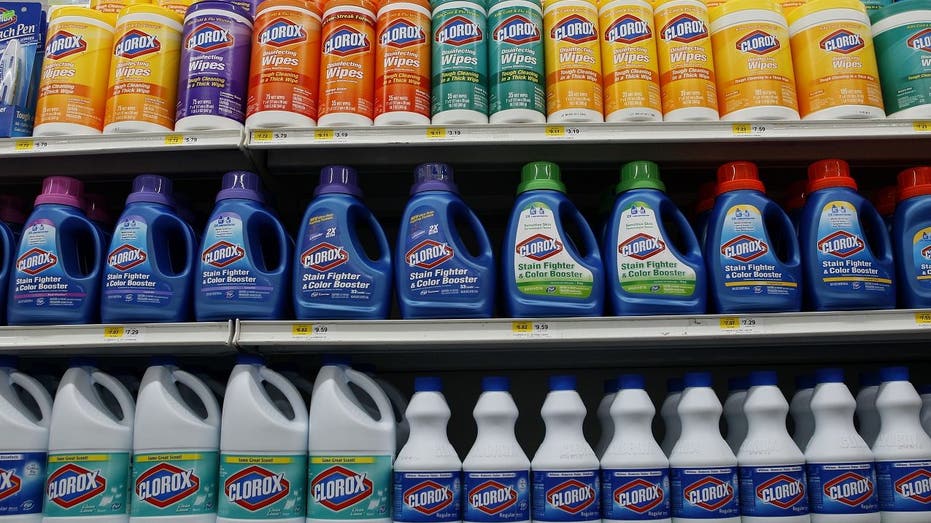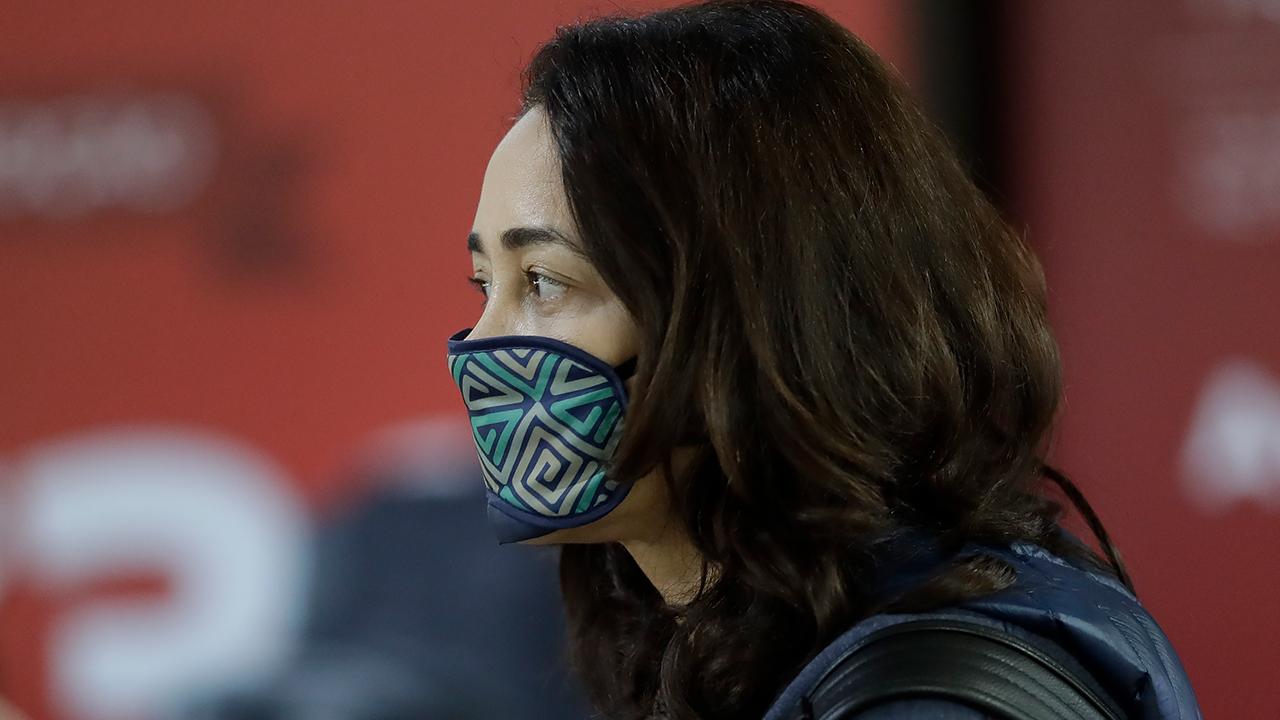Clorox boosts sanitizer output amid coronavirus-driven demand
'Our people are working round the clock'
Companies that make household cleaning products such as Purell hand sanitizer and Lysol wipes are boosting production as they brace for a surge in demand because of the spread of coronavirus.
U.S. health officials have recommended disinfecting frequently touched surfaces with household-cleaning sprays and wipes to help stop the virus's spread. They also recommend alcohol-based hand sanitizers if soap and water are unavailable.
"Our people are working round the clock with consumers in mind," Laxman Narasimhan, chief executive of Lysol parent Reckitt Benckiser Group PLC, said in a call with analysts on Thursday.
CLICK HERE TO READ MORE ON FOX BUSINESS
The British consumer-products giant has assembled a companywide team to "overcome hurdles" in ensuring consumers have access to cleaning products and information on how to properly use them, he said. In China, shoppers are buying more online as they stay home and avoid public spaces, he said.
Purell has seen a "substantial increase" in demand for its line of sanitizing products, particularly for hand sanitizer and hand sanitizing wipes and cleaning spray, said a spokeswoman for Purell parent company Gojo Industries Inc. Consumer demand online and at retailers has been especially pronounced, while businesses and health facilities have stepped up orders more incrementally.

(AP Photo/Mary Altaffer, File)
She said the company has significantly increased production to meet anticipated demand, adding shifts and having employees work overtime. The latest rise in demand, she said, is "not unprecedented," but is more pronounced than outbreaks such as SARS in 2002-03 and the H1N1 influenza virus in 2009.
Clorox Co., with a slate of cleaning products that includes disinfectant sprays and wipes, has also stepped up production, a company spokeswoman said. The company is prepared if there is a surge in demand, she said.
"In the coming days, things like disinfecting surfaces and cleaning hands are going to become more important to the public, to the magnitude of what's required in hospitals," said Emily Landon, medical director for infection control at the University of Chicago Medical Center.
That is because the virus, which is largely spread by touching infected surfaces, is as transmissible as the flu but more dangerous and lacks a vaccine. "There is a lot that can be done by slowing the spread," she said.
The expected surge in demand for these products has propped up shares of some of the companies that make them. Clorox's stock hit new highs this week while the broader market plummeted.
| Ticker | Security | Last | Change | Change % |
|---|---|---|---|---|
| CLX | THE CLOROX CO. | 119.36 | +1.75 | +1.49% |
| PG | PROCTER & GAMBLE CO. | 159.17 | +0.56 | +0.35% |
| RBGLY | NO DATA AVAILABLE | - | - | - |
| CL | COLGATE-PALMOLIVE CO. | 94.41 | -0.47 | -0.50% |
As household-goods companies work to make sure they have adequate supply, they face another challenge: ensuring consumers know which products work and how to use them effectively, while avoiding claims that will draw a reprimand from health officials.
Companies are permitted to discuss the use and efficacy of surface cleaners, while they are prohibited from disclosing the same information about hand sanitizers. That is because the Environmental Protection Agency governs surface cleaners, while the Food and Drug Administration oversees hand sanitizers, and the agencies have different rules about what companies are allowed to say.
Product testing on this particular strain of coronavirus, known as Severe Acute Respiratory Syndrome Coronavirus 2, or Sars CoV-2, hasn't happened due to the newness of the outbreak. Yet because household sanitizers have proven effective in treating other coronavirus strains, health officials recommend they be used in preventing Sars-CoV-2.
GET FOX BUSINESS ON THE GO BY CLICKING HERE
Several products, including Dettol and Clorox cleaners, have long claimed in their labeling to be effective in killing coronavirus.
To work, however, the products must be used specifically as directed. Clorox, for instance, says, when disinfecting wipes are used, a surface must stay wet for four minutes, while spray cleaner with bleach needs to stand for at least 30 seconds.
The U.S. Centers for Disease Control and Prevention lists alcohol-based hand sanitizer as a tool in preventing the virus's spread, but says that washing with soap and water is a better defense.




















